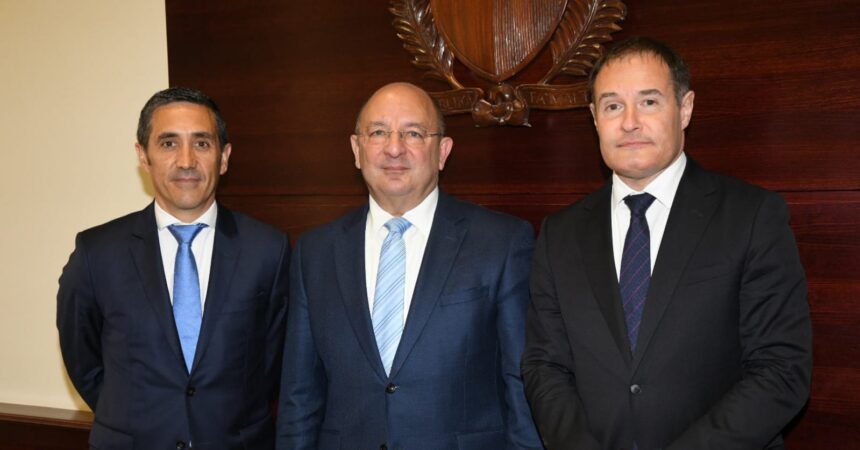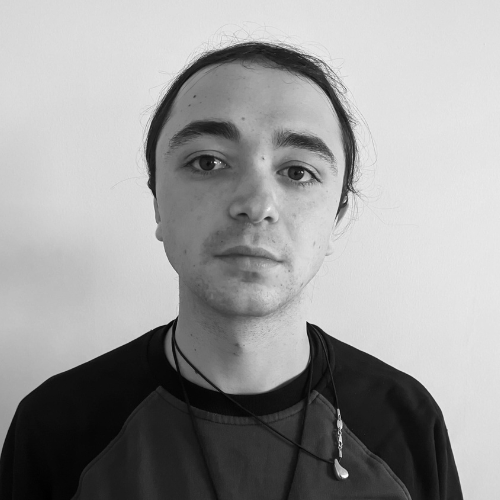Fabrice Leggeri, the former head of the European Union’s border agency Frontex, has joined the French far-right party National Rally, leaving no doubt about the orientation of the agency’s past policies, which were widely supported by Malta’s supposedly socialist government.
Leggeri resigned from Frontex in 2022 amid an investigation by the EU’s anti-fraud office, OLAF, and after dropping off the radar, he announced at the weekend that he had joined the party headed by Marine Le Pen ahead of the EU elections scheduled for June 2024.
National Rally is a right-wing populist party known for its firm anti-immigration stance, including significant cuts to legal immigration and stricter controls on illegal immigration, and it has been widely accused of promoting racism, xenophobia, and antisemitism, as well as for being close to Russia and Vladimir Putin.
After announcing his new political adventure, Leggeri gave a speech in France stating he wanted Europe to “regain control of their borders.”
“Frontex has been hijacked by the European Commission, and we need to return it to its role as a border guard,” he told right-wing supporters at a rally.
Leggeri in Frontex
Leggeri held the position of head of Frontex between 2015 and 2022, during peak years of criticism against the agency. He previously worked on migration issues in the French Ministry of the Interior and other territorial affairs and security roles.
At the start of his tenure, the EU ombudsman’s office recommended that Frontex respect the fundamental rights and human dignity of individuals being returned. It called for more transparency, to amend its conduct and to promote independent and effective monitoring of joint return operations.
But this did not happen. Under his mandate, the agency became subject to more criticism regarding human rights and increased reports of illegal pushbacks involving Frontex, EU member states’ coast guards and border police, and all involving the knowledge or complicity of Frontex.
In 2020, he told a European Parliament committee that only one such incident of pushback was reported to his agency, something disputed by journalists, activists, and politicians.
In autumn 2020, the European Parliament called for his resignation after journalists revealed the role of Frontex in pushing back asylum seekers to Turkey, the agency’s investment of €100 million in surveillance drones, and reports from Malta and even Albania of other illegalities.
By December, OLAF had raided the offices of Leggeri as part of an investigation into “harassment, misconduct, and migrant pushbacks” and his active resistance against recruiting additional personnel to bolster the European Border and Coast Guard Agency as required by EU regulations.
In 2021, Frontex was also accused of being involved in meetings with unregistered lobbyists representing the weapons, surveillance and biometrics industry.
An investigation concluded that Frontex, under Leggeri’s leadership, misled the European Parliament, but it was not until April 2022 that he finally resigned.
Labour, Leggeri and migrants
The Maltese government has long touted its relationship with Frontex as it pursues aggressive policies, both officially and unofficially, to the detriment of migrants.
In 2019, Malta welcomed Frontex Liaison Officer, Miguel Nicolau, to Malta, with Minister Michael Farrugia posting pictures of them, including Leggeri, to X (Twitter).
Since the Labour Party came to power in 2013, the situation for migrants crossing in boats from North Africa in the hopes of reaching Europe has become increasingly dire.
Nearly 17,000 people are believed to have died, and over 12,000 went missing between 2014 and 2024 in the Central Mediterranean route, while thousands more have been returned to Libya, where they face well-documented reports of arbitrary detention, rape, violence, and even slavery.
Those who remain in Malta are subject to “inhuman and degrading” conditions in migrant detention centres such as those at Safi and the Hal Far open centre.
Then, in 2022, the European Centre for Constitutional and Human Rights and Sea-Watch filed a complaint at the International Criminal Court, calling for Prime Minister Robert Abela and disgraced former prime minister Joseph Muscat to be investigated for individual criminal responsibility” for the pushbacks of irregular migrants to Libya and the consequences of those pushbacks. Leggeri was also named in the suit.
Meanwhile, countless instances of collusion between Frontex and Malta have surfaced, with the Maltese authorities consistently failing in their international, maritime, and human rights law obligations.
In 2022, a drone registered and operated out of Malta by a private company on behalf of Frontex was implicated in human rights abuses, according to Human Rights Watch. The drone, plus planes, were found to be relaying information on migrants leaving Libya to the Libyan authorities, leading to pushback.
Frontex was also found to have shared the coordinates of vessels in distress with the Libyan authorities more than 2,000 times, facilitating the return of migrants to unsafe conditions while also refusing to provide documents on its work with the Libyan Coastguard while in Maltese search and rescue zones.
In addition, both the mandates of Muscat and Abela have been rife with statements against migrants and on migration, fostering a climate of hatred and positioning migrants as “the enemy”.
For example, comments from the CEO of the Foundation for Social Welfare, Alfred Grixti, who said the government should “impound rescue vessels and scuttle them,” and Finance Minister Clyde Caruana, stating other countries are “drowning in migrants” while Malta was not.
In addition, Minister Byron Camilleri uploaded photos of black migrants in handcuffs, being escorted by police with captions about the government “attacking” migration.
The country has also seen the arrest and prosecution of three Maltese police officers for kidnapping and assaulting migrants. At the same time, in 2019, two soldiers were charged with murdering migrant Lassana Cisse Souleymane.
In March 2022, the Council of Europe’s European Commission against Racism and Intolerance (ECRI) expressed concern that Malta had no plans to introduce a form of regularisation for people who had resided in the country for many years and could not be returned to their countries of origin.
Recently, an investigation found that Malta was among EU states lobbying to allow the imprisonment of child migrants at borders from birth while reducing protections for unaccompanied children.
Malta’s socialists veer further right
As the Maltese government’s stance on migration is undoubtedly right-wing, its approach in other areas is also rather far from the left.
For example, domestically, industries and services in the public sector have increasingly relied on private investment and ownership for their maintenance and basic functioning.
Since the Labour Party’s initial election in 2013, the operation and ownership of some public services and infrastructure have been sold off to private investors. Many of these deals, such as the “fraudulent” Vitals Hospital deal, have been embroiled in significant corruption and coincided with the increased dysfunction of essential public services.
Public land has also been subject to extensive privatisation. The Shift has reported extensively on the political weaponisation of development permits and the unprecedented rate at which the government has sold ODZ land to private developers.
The prime minister has also allowed powerful individuals and companies in the private sector considerable influence over government policy. Besides the more tangible ways this negatively influences people’s lives, such as locking an entire generation of people out of the “booming” housing market, the relationship the prime minister enjoys with such individuals often manifests itself in bizarre ways, such as appearing at a grand opening of Starbucks.
These are just some examples of policies that are not progressive, leftist or socialist and instead veer towards populism, the right, and borderline libertarianism. The venturing of the ex-Frontex chief into the world of far-right politics lays bare the political orientation of the Maltese government’s politics.














Willie Sutton, a prolific American bank robber in the 1920s and 30s, famously replied to a reporter that he robbed banks because that’s where the money was. Likewise, the MLP mob keeps on fleecing the Maltese taxpayer under any and all conceivable pretexts because, in the words of another American of that era, “it’s morally wrong to allow a sucker to keep his money”.